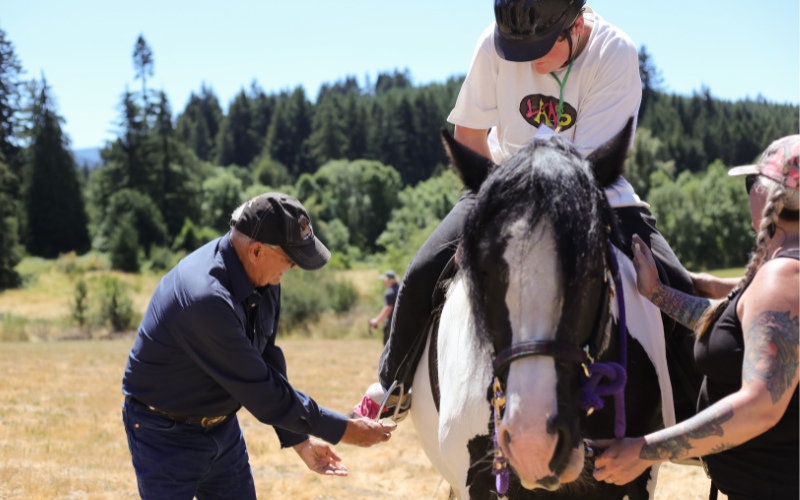
- Details
- By Elyse Wild
Washington’s American Indian Health Commission is asking the state legislature to consider a federal waiver that would allow Medicaid to pay traditional Native American healers.
The commission’s executive director, Vicki Lowe (Jamestown S’Klallam Tribe descendant), spoke at a Jan. 8 panel discussion with the State Board of Health to review legislative priorities for 2025. The commission includes delegates from the state’s 29 federally recognized tribes and Urban Indian Health Programs.
“Our medicine has been withheld in the past,” Lowe told the panel.
According to Lowe, allowing tribal clinics to bill for traditional practices — such as sweat lodges, drumming circles, dancing and other ceremonies — is crucial to building culture into healthcare delivery in Native communities.
Native communities experience health disparities in many chronic illnesses, with high rates of diabetes, liver disease, and asthma, as well as some of the highest overdose rates and incidences of death by suicide. Numerous studies show addiction and behavioral healthcare built around culture and traditional practices increase positive outcomes for Native communities.
“To close these disparities, we really need to bring this kind of [traditional] provider back and to make it just sustainable,” Lowe told Native News Online.
Medicaid coverage for traditional healing would also help address funding gaps at tribal health clinics. Indian Health Service funding covers only part of needed costs, forcing providers to bill third parties to make up the difference.
Lowe, who has worked with the Commission since 1996, says the conversation about Medicaid compensation for traditional healing has been “happening for decades.”
In 2012, the Commission explored obtaining an uncompensated care waiver for traditional healing, which allows states to create funding pools to pay for care provided to the uninsured or underinsured.
“It just didn’t fly,” Lowe said.
The initiative still faces several challenges, including data sovereignty — determining where information is stored and who owns it— as well as how to quantify cultural practices.
“We need to think about all of these things, think about how to keep it safe and secure but also make sure we’re getting enough information that the billing can actually happen,” Lowe said.
“The state doesn't have the expertise to certify these providers, so they'll be certified somehow through the Indian health care delivery system. They'll probably have to work either at a tribe (or an) Urban Indian Health Organization.”
In 2024, four states — Arizona, California, New Mexico and Oregon — obtained waivers to cover traditional American Indian and Alaska Native healing practices. The new waivers in Arizona, New Mexico, and Oregon allow Medicaid-covered, IHS-eligible individuals to receive traditional health care services, while California’s waiver currently covers only IHS-eligible people in its drug-treatment system. IHS eligibility includes members of federally recognized tribes and certain close family members.
For Lowe and Washington’s tribal communities, it’s clear what these changes could mean: “We know that when Native Americans, Alaska Natives receive their traditional care, they will heal faster,” she said.
More Stories Like This
Senate Passes Bill Aimed at Missing and Murdered Indigenous Peoples CrisisJohns Hopkins Collecting Tribal Success Stories from $1.5B Opioid Settlement
Arizona MMIP Task Force Holds Listening Session for Survivors and Families
‘A good stew is a story’ Blackfeet buffalo rancher shares Three Sisters Buffalo Stew recipe
National Indian Health Board Urges Congress to Extend Enhanced Premium Tax Credits


